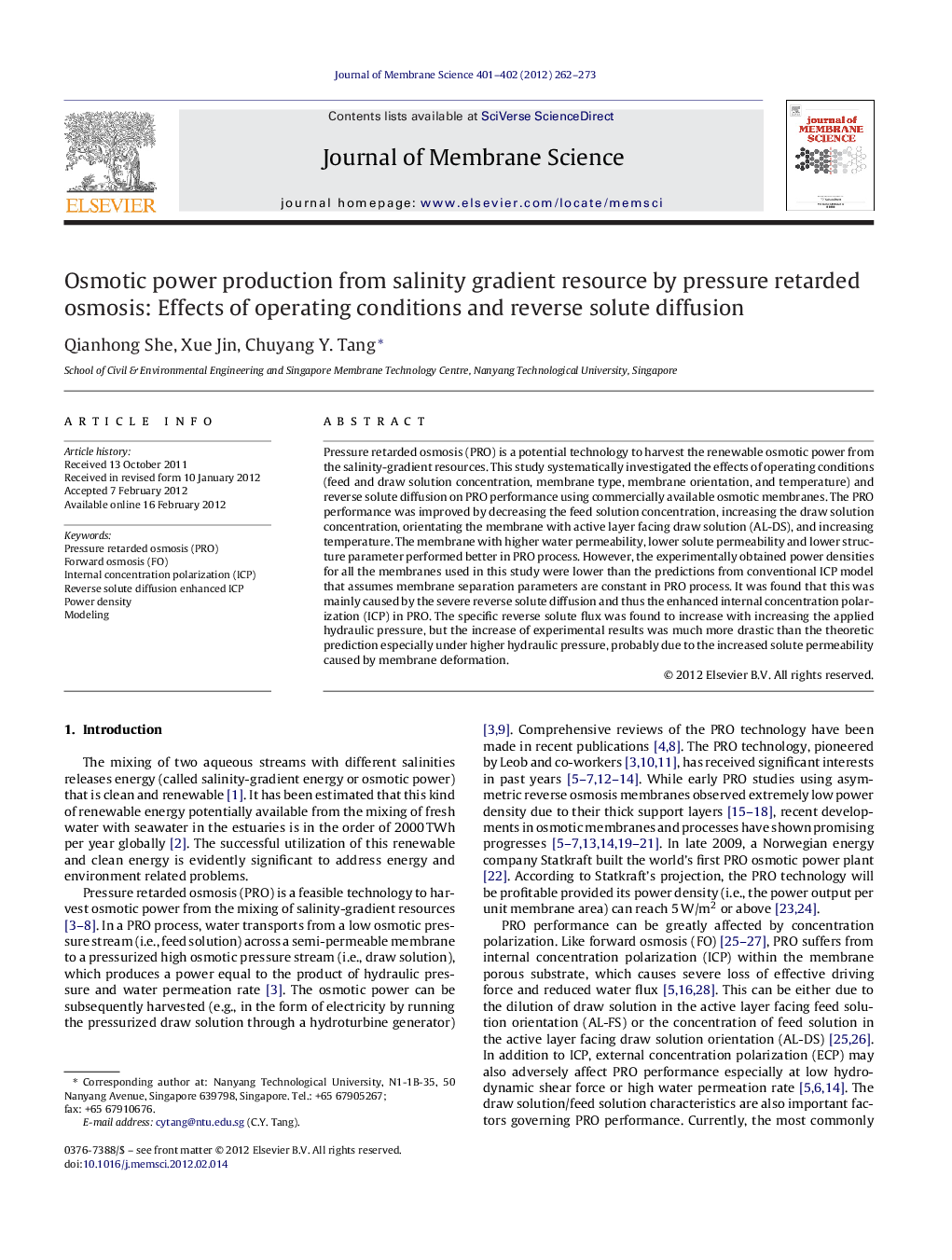| Article ID | Journal | Published Year | Pages | File Type |
|---|---|---|---|---|
| 635011 | Journal of Membrane Science | 2012 | 12 Pages |
Pressure retarded osmosis (PRO) is a potential technology to harvest the renewable osmotic power from the salinity-gradient resources. This study systematically investigated the effects of operating conditions (feed and draw solution concentration, membrane type, membrane orientation, and temperature) and reverse solute diffusion on PRO performance using commercially available osmotic membranes. The PRO performance was improved by decreasing the feed solution concentration, increasing the draw solution concentration, orientating the membrane with active layer facing draw solution (AL-DS), and increasing temperature. The membrane with higher water permeability, lower solute permeability and lower structure parameter performed better in PRO process. However, the experimentally obtained power densities for all the membranes used in this study were lower than the predictions from conventional ICP model that assumes membrane separation parameters are constant in PRO process. It was found that this was mainly caused by the severe reverse solute diffusion and thus the enhanced internal concentration polarization (ICP) in PRO. The specific reverse solute flux was found to increase with increasing the applied hydraulic pressure, but the increase of experimental results was much more drastic than the theoretic prediction especially under higher hydraulic pressure, probably due to the increased solute permeability caused by membrane deformation.
Graphical abstractFigure optionsDownload full-size imageDownload high-quality image (145 K)Download as PowerPoint slideHighlights► PRO performance improved at lower Cfeed, higher Cdraw, in AL-DS orientation, and higher T. ► Membrane with higher A value, lower B value and lower S value performed better in PRO. ► The PRO specific reverse solute flux increased drastically at higher applied pressure. ► The severe reverse solute diffusion can enhance ICP and strongly reduce PRO performance.
